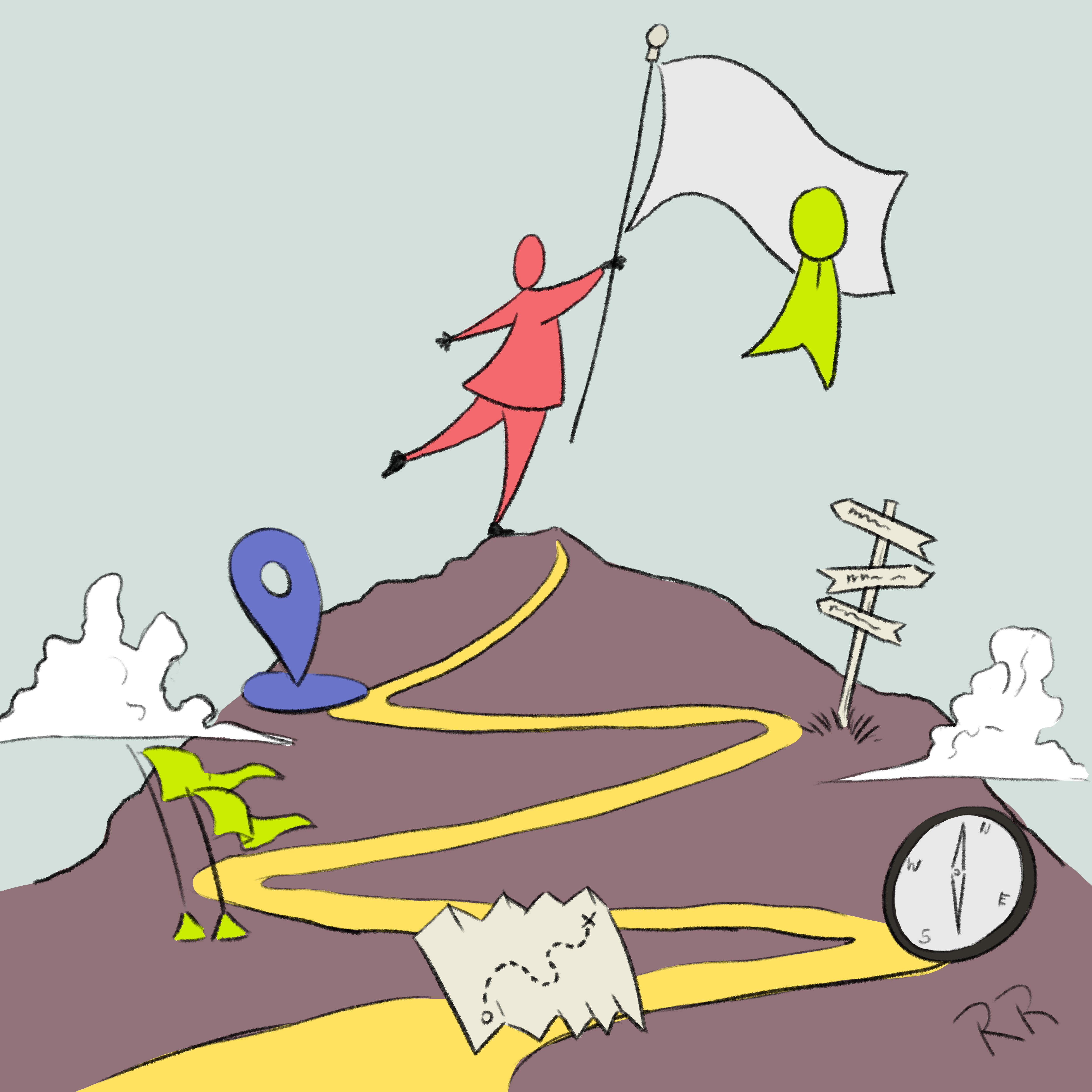You’ve shown up to class, bought your Martha Beck books, printed out your notes, and even started coaching real people. Yet despite your best efforts at being as organized as possible, you might be overwhelmed by the amount and structure of information in the coaching hub and group forums. You can’t help but ask yourself “what do I do?”
Here’s the good news: The certification journey isn’t about rushing to the finish line. It is a structured process designed to help you become the best coach you can be. Through class discussions, practice, mentorship, and reflection, you’ll develop the skills and mindset needed to support clients with clarity and compassion. You’ll learn to embody the ICF Core Competencies in your coaching practice and integrate powerful Wayfinder tools with confidence.
Let’s break down the core elements of the Wayfinder Coaching Training program so you can finish it and get certified without losing your sanity.
1. Practice
This is where your coaching practice takes shape. You’ll complete 75 hours of coaching outside of class (paid or unpaid) with at least eight different clients.
These hours might feel like a lot at first, but they add up fast. Each session counts, even the awkward ones. Practice helps you build your coaching muscles and much like exercising, consistency is everything.
WxW tip: Ask the person you trust the most in the world to be your client and get that first session done.
2. Participate
To get certified, you’ll also need to participate in class. For this, you need to:
- Be observed coaching in 6 sessions. You can use 2 of these sessions to count towards your recorded sessions.
- Join 5 group mentoring sessions
These sessions are part of the core curriculum, so jump in early and often. Volunteer for observed coaching during class and keep track of your participation. The safe and supportive class environment is designed to help you grow.
Observed sessions might feel nerve-wracking at first but this is normal. With each observed session, your confidence will grow. You’ll learn from your own experience, and by watching your peers coach. Additionally, feedback from instructors will help finesse your unique coaching style.
WxW tip: Think of these sessions as experiments, not performances. Your job is to be present, not perfect.
3. Document
This is where the paper trail shows just how much you’ve grown.
You’ll need to keep a written record of:
- 75 practice hours (your practice log comes in handy to log these hours as you practice
- 6 Observed Coaching sessions. Keep a note of dates when you’ve done these in class.
- 5 group mentoring sessions
When you start putting your knowledge into writing, you’ll begin to see how far you’ve already come, and where you might want to stretch next.
WxW tip: Use the practice coaching tracker early and often. Keep updating it as you go along to avoid the overwhelm of filling it at the last minute.
ACC Credential-bound Tip: track your paid sessions from the beginning.
4. Demonstrate
This is where you bring together your learning in one place. Your mentor will be assessing how well you can demonstrate your knowledge and application of the Wayfinder coaching tools and ICF Core Competencies. They’ll also be looking out for how you hold space and move with the client.
To Demonstrate, you’ll complete:
- Multiple-Choice Review
- Long-Answer Review
- Self-Assessment Form
- 1–2 recorded coaching sessions (30–40 minutes each, strictly enforced)
- Transcripts of recordings
The recorded sessions are your chance to show your natural coaching presence. Make sure you review the ICF Core Competencies and use all of them during the session.
WxW tip: Trust the coach you’ve already become. Assessments can be nerve-wracking but don’t overthink them. Relax and let your intuition guide you.
5. Listen
Once you’ve demonstrated your skills, you’ll move into the final stage: Mentoring and Certification Approval.
Here’s what to expect in the Listen phase:
- You’ll be offered five mentor options (final selection made by MBI)
- You’ll complete 3 individual mentoring sessions with your assigned mentor
- You’ll receive your ICF-recognized Life Coach Certificate (211-hour ICF ACTP/Level 2 Program) once all requirements are met
This step is where things settle and solidify. Your mentor will give you feedback on your reviews and recordings which will help improve your coaching skills. You may have to re-do some sessions, but don’t be frustrated. This is all part of the learning process.
WxW tip: Take notes during your mentor meetings. Your mentor’s reflections can help you spot patterns, refine your instincts, and reinforce what’s already working.
ICF Certification is complex and can be confusing. To make things easier, we’ve created an infographic to help you visualize the full certification journey. Print it out, keep it visible, and celebrate each milestone as you check it off.
If you need more support in your Wayfinder Certification journey, don’t hesitate to reach out. We are happy to help.





